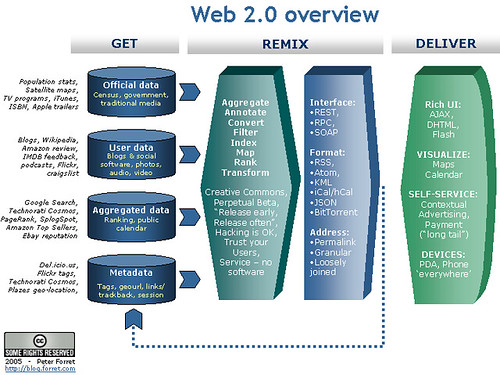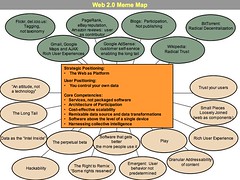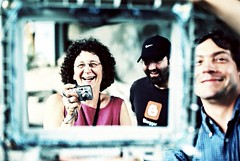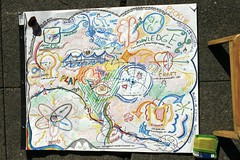NetSquared | A project of TechSoup
Emily Chang is Big into Web 2.0
qarrtsiluni - what is waiting to burst forth
Love and Warm Electronic Communications
Insights from the Houston Hurricane Disaster Recovery Center
Another Web 2.0 mememap overview
John Hagel: What is Web 2.0?
New Forms of "Gathering" - Blogoposium"
Live Conference Wiki-ing - Complete with gestures
Virtual Communities Conference Cancelled
JotSpot Live - Another cool shared writing tool?
A gem from George on the Connectivism Blog
Writely - The Web Word Processor
Conference Live Blogging - Yoga!
Project 800: Katrina Global 800 Help (And Rita too)
Knowledge Management for Development Journal - New Edition
Drown in pain or gag on false news
Some days you have to be proud to be a Dukie
Blogs and Forums in Disaster Response
David Wilcox: Participation is a culture, not a tick box
School Walk Out Organized Online - And who is watching?
The Snowsuit Effort - I Still Love this Blog
Word of Blog.net - Cause and Blog
Demos - People Make Places
The Priviledge of "Social Software"
Posting Mailing List Posts on Blogs
Blog Meets Conference: Global PR Week Blog
Reflections from the CIO of Louisiana State University
Update and Correction on Red Cross Hotel Reimbursement Program
More "kitchen help" Katrina activism
What is the role of conversation in Katrina Recovery efforts?
Weinberger: Emergency VOIP and real security
Libsyn - Free basic podcasting hosting for your Red Cross Donation
Houston Helps - A blog to help mobilize recovery aid in Houston
United Houma Nation: Katrina Needs and Response
Katrina Feeds - Aggregating Blogs Posting About Katrina
Burningbird: Change starts at home
Four Wheelers Needed in Mississippi
mymindmaps - a photoset on Flickr
Voices of Katrina - Stories from "Reliant"
Pregnant women, babies and the story from shelters in LA
The Katrina Data Project - Central Data Store for Missing & Safe Persons Lists
Mom's Rule: Direct Katrina Relief
Read This: A tech volunteer in Houston
Interactive events based on large group interventions
Formatting images for ...uh... the less HTML literate
The definitive collection of idea generation methods
The Babies in Katrina's Path
Internet access for Katrina's victims
And now something for pure pleasure...
Some More Katrina Blogs and Sites
Comment on Jarvis' Recovery 2.0: A call to convene
Katrina: IT Technical Assistance Information & Needs
Connecting Web 2.0 and Recovery 2.0
Recovery 2.0 - Where we might go from here
Learning from Katrina: Internet Responses to Disasters Yi-Tan Call Sept 12
Why there is "Walk" in BlogWalk
Katrina Shelter -- Listing of Shelter Locations for Hurricane Katrina Victims
Another People Finder- Hurricane Katrina "I'm OK" Registry
Hurricane Katrina Missing Persons Search
Recovery 2.0: A call to convene
Attention Fellow Bloggers: Tagging for Katrina
Community Building: More Hurricane Related Blogs/Pages
Katrina: The Knitting Bloggers are IN!
Katrina's Missing Kids: National Center for Missing & Exploited Children
And now, a smile (because we need them)
Eye Of The Storm - Personal Blog from Pass Christian, Mississippi
Katrina People Finder Volunteer Request Badge
Hurricane Katrina: Tagging
Stories from the Hurricane Zone
Another Database? Aren't you part of the problem? NO! (with a call to Google)
Self Organizing Hurricane Response Efforts - what should we pay attention to?
NOLA.com Forum Feeds - ThinkNOLA
Wiki Neighborhood Focus- ThinkNOLA
Katrina Aftermath: Add a Red Cross Button to Your Blog
CarePages.com - Free Katrina Services
Flickr Digest: Missing People
Katrina Aftermath: Peoplefinder data interchange spec & volunteer
NOLA.com: Mobile Phone Volunteers
Something We Can Do: Online Folks!
More Katrina Online Resources - Saturday Version
BlogWalk Seattle 2005 - The Poster
NOLA.com: Katrina Missing Persons Forum
Wired News: Craigslist Versus Katrina
Update on the TLB Blog Relief Campaign
Hurricane Katrina Survivors - Home
Blogday 2005 - #5 a Day Late















